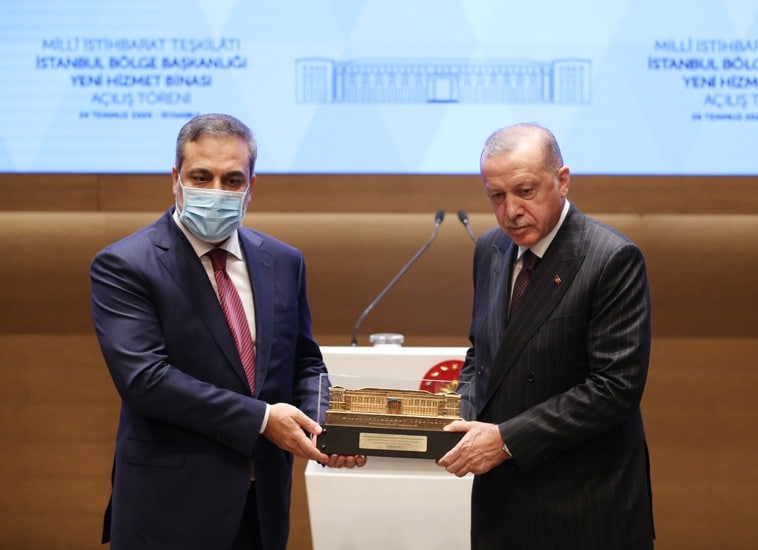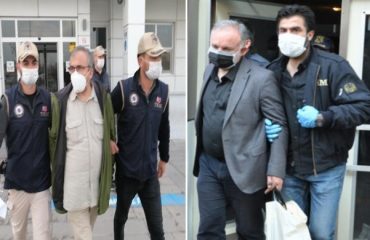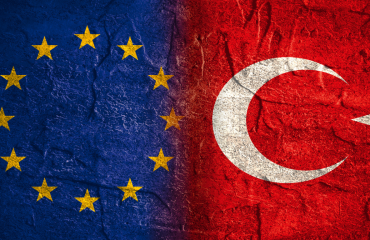

A sentence from President Tayyip Erdoğan’s speech on the occasion of the opening of the National Intelligence Organization’s new building in Istanbul’s neighborhood of Maslak on July 28 is a distortion of history that is hard to digest. In his speech, the President did not mention the founder of Turkey’s first central foreign intelligence structure, the leader of our War of Independence, the founder of our Republic, Mustafa Kemal Atatürk. Nor did he mention Marshall Fevzi Çakmak who organized the National Security Services (MAH) that preceded MİT. The only name he mentioned was Sultan Abdul Hamid II (the 34th Sultan, 1842-1918).
According to Erdoğan, “Thanks to the deceased Abdul Hamid Han’s powerful intelligence network and diplomatic genius, the country survived several misfortunes without sparing a bullet, a fact that is explained lengthwise in history books.”
Whichever book that is, I would very much like to read it. Since history books state that during his 33-year long reign, twice as much land as today’s Turkish territory – which Atatürk and the heroes of the War of Independence protected – were lost. That is, Sultan Abdul Hamid II lost 1.5 million kilometers of land.
Erdoğan’s Security and Foreign Policy Chief Advisor and spokesperson İbrahim Kalın is highly knowledgeable of these matters. This makes me think Kalın no longer reads these texts of Erdoğan’s speeches.
Cyprus, Crete, Kars, Ardahan, Pleven
History books state that Abdul Hamid II left Cyprus – Turkey’s most important foreign policy issue, which remains unresolved – to the United Kingdom without firing a bullet. At the end of the 1877-78 Russo-Turkish War, the Treaty of San Stefano was signed in today’s neighborhood of Yeşilköy in Istanbul. The Russian army had come as close as Yeşilköy, and Britain threatened the Russians with the launching of a war to force them to withdraw and refrain from entering the Ottoman Empire’s capital city. As a result of this, Cyprus was granted to Britain without sparring a bullet. Under a surrender agreement, Abdul Hamid gave the protectorate of all Orthodox communities within the Ottoman territory to Russia. Following this, Armenian nationalism surged. The War of 1877-78 did not only cause the loss of the Balkans, my late grandfather’s hometown Razgrad, Pleven and Skopje, but Kars, Ardahan, Batumi, Artvin, Doğubayazıt and Eleşkirt in the east were also left to the Russians. In addition to that, the Ottoman Empire had to pay war compensation.
Due his targeting of “domestic enemies” rather than “foreign enemies” and the cruelty of his Hamidiye Regiments, Abdul Hamid II bears his share of responsibility for the pains that linger today with regards to the Armenian and Kurdish issues. Crete, another pearl of the Eastern Mediterranean, was also lost during the reign of Abdul Hamid II. The Jewish settlements in Palestine were first allowed during the Abdul Hamid era, which Erdoğan lauds as an era of “diplomatic genius.” The city Tel Aviv, which was later to be declared as of Israel’s capital, was a mass housing project that was launched during the time of Abdul Hamid.
On his intelligence genius
Perhaps the text about Abdul Hamid II would be removed from the MİT website because I have written about it. Nevertheless, let us read about Abdul Hamid’s ability to gather intelligence – which our president admires – through MİT’s own history:
“Abdul Hamid II and the Yıldız (*) Intelligence Organization: Around the end of the 19th century, state intelligence was improved, but it became a tool that served personal interests. In his memoires, [Abdul Hamit] said “If foreign states were able to place people who would serve them, to [Ottoman] positions such as vizier and grand vizier, then the state wouldn’t be safe. I decided, with this thought in mind, to establish an intelligence organization that directly reports to me. That is what my domestic enemies call ‘informing or spying organization’. That was Abdul Hamit’s own explanation as to why he needed the organization. Another matter Abdul Hamid II expected from his intelligence staff was for them to “reveal possible conspiracies against his own throne.” (*Yıldız was Abdul Hamid’s Palace in Beşiktaş neighborhood of Istanbul.)
This is the truth: What Abdul Hamid II established, in MİT terms, the Yıldız Intelligence Organization, was not a national institution. Rather, it was a personal intelligence organization. Abdul Hamit II was toppled by the Teşkilat-ı Mahsusa (Special Organization), which was formed by the İttihat ve Terakki (The Committee/Party of Union and Progress, a reform movement in Ottoman times) as an ideological organization. The leader who established the first national intelligence organization in Turkey was Atatürk, whom Erdoğan did not feel the need to mention.
This is bewildering, isn’t it?
(Translated by Duvar English).


